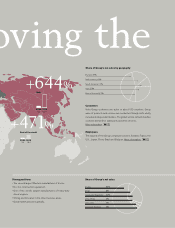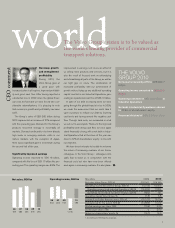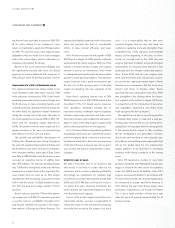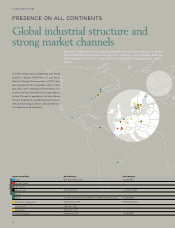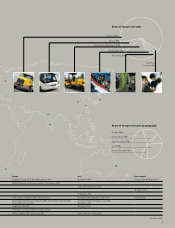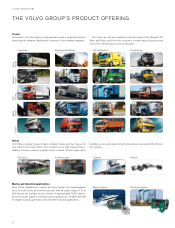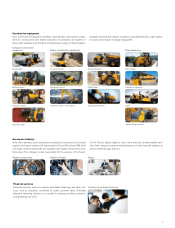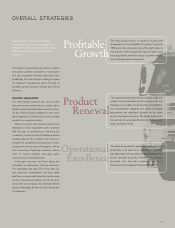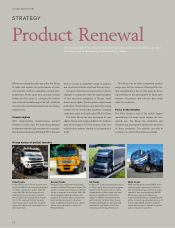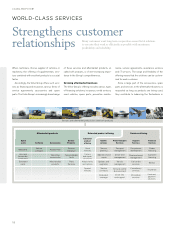Volvo 2010 Annual Report Download - page 13
Download and view the complete annual report
Please find page 13 of the 2010 Volvo annual report below. You can navigate through the pages in the report by either clicking on the pages listed below, or by using the keyword search tool below to find specific information within the annual report.
The people on Earth produce more than 2,000 million tons of garbage
every year, and just a few days without refuse collection would be
catastrophic for cities and suburban areas. In New York City alone, refuse
trucks from the Volvo Group collect 11,000 tons of garbage each day.
Every day, Mack trucks collect tons of refuse all over the U.S. The
demands imposed on these trucks are rigorous. They have to get through
in every situation and they must not break down. Should the garbage
collection stop, it wouldn’t take long for the cities and suburban areas to
become inundated by waste.
Mack refuse trucks collect 2 million tons of garbage every week in the
U.S. Is the number hard to grasp? Try this: With the garbage that Mack
Trucks refuse trucks transport every week in the U.S., it would be possi-
ble to build a column of filled garbage cans that reaches all the way to the
moon.
Mack has been leading the U.S. market for refuse collection for more
than 30 years. The company’s operations are most extensive on the east
coast, with huge cities like New York, Boston and Philadelphia. In all,
Mack has almost 50% of the refuse vehicle market in the U.S. and its
success is continuing.
Customers range from private family-owned companies with just one
refuse truck to local authorities and large cities, such as New York City,
operating around 2,500 Mack refuse trucks that haul more than 11,000
tons of trash every day.
Mack collaborates closely with customers to customise trucks that
match their specific requirements. In New York, for example, a number of
refuse trucks are also able to help with snow clearance using a specially
designed plow.
All Mack trucks are built at the plant in Macungie, Pennsylvania. The
Mack TerraPro model is primarily used as a refuse truck. At the plant,
the trucks are also adapted to match customer requirements. The next
step in the development process involves alternative fuels. Both hybrids
and natural gas driven vehicles are important, and many customers in
different parts of the U.S. are interested in extending their fleets to include
more energy efficient and environmentally sound vehicles.
9



